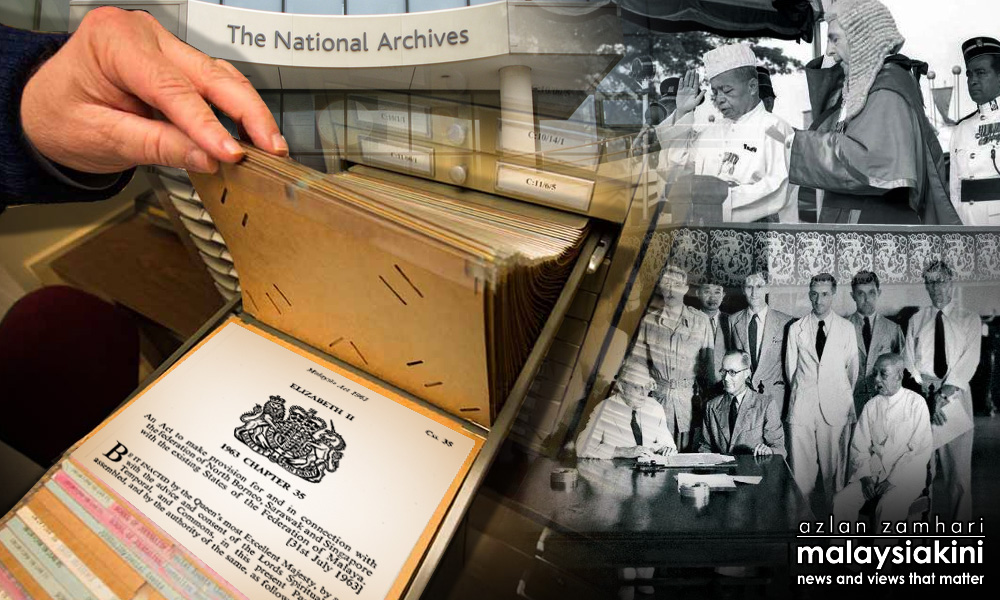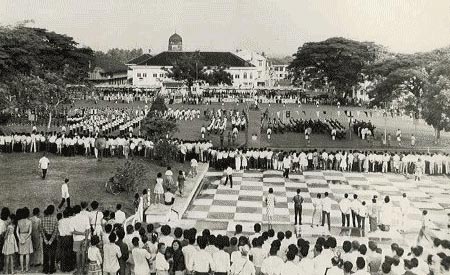
The continuing rhetoric and polemics on the Malaysia Agreement 1963 (MA63) in Borneo, with an occasional response from Putrajaya, misses the real issue in Sabah and Sarawak: decolonisation.
Bingkor assemblyperson Jeffrey Kitingan, a longtime Borneo rights advocate, has called for a new MA63, where Sabah and Sarawak will be equal partners with Malaya in the Federation of Malaysia.
This doesn't quite jell with the definition of "Federation" in Article 160 of the Federal Constitution. The "Federation" is defined in the article as that based on the Federation of Malaya Independence Act 1957. It reinforces the Federation of Malaya Independence Agreement 1948.
On July 13, 1976, Article 1 (2) of the Federal Constitution was amended to read that Sabah and Sarawak would be states, the 12th and 13th, in the Malayan Federation, now known as Malaysia.
The Malaysian government takes the position that this was in compliance with MA63. Earlier, before Jeffrey called for a new MA63, he had based his politics on claims that the federal government of Malaysia had been in non-compliance on MA63.
On Sept 11, 1963, the government of Malaya told the Supreme Court that "the Federation of Malaya would continue after Sept 16, 1963." It was facing a lawsuit by the government of Kelantan on Malaysia.
Matters have not been made any easier by Prime Minister Najib Abdul Razak pledging on Malaysia Day that his administration would restore the rights of Sabah and Sarawak under MA63.
The late Sarawak chief minister Adenan Satem also called for the autonomous status of Sabah and Sarawak, as it existed on Sept 16, 1963, to be restored.
Najib, in response, had offered to devolve greater administrative powers to Sabah and Sarawak.
The prime minister explained that such devolution would mean weeding out duplication of state and federal departments. Federal departments would be transferred to locals or the state governments of Sabah and Sarawak.
Since Adenan's passage, there has been no news from Putrajaya, or the Sarawak government, on the proposed administrative devolution.
 Again, the crux of the issue is decolonisation. It could be argued that the entry of Sabah and Sarawak into the Federation of Malaysia was one form of self-determination.
Again, the crux of the issue is decolonisation. It could be argued that the entry of Sabah and Sarawak into the Federation of Malaysia was one form of self-determination.
This would be true, of course, if it was the intention of the people of Sabah and Sarawak that their homelands merge with the existing states in Malaya.
However, there's no such intention on record.
MA63 itself speaks of Sabah and Sarawak, and Singapore as well, federating with the existing states in Malaya.
In Singapore, there was a 'Yes/No vote', on the eve of Malaysia Day, on the merger with Malaya.
Singapore's predominantly Chinese population was one reason the departing British dragged Sabah and Sarawak, Orang Asal homelands, into the federation with Malaya.
Singapore was happy to be in Malaysia because of its economic strength and the greater prospects in a Customs union and common market.
The British also wanted to shed their defence burden in Singapore and Borneo.
They also wanted to place their commercial empire in Singapore, Malaya and Borneo under one administration in Kuala Lumpur.
There are parallels in Borneo, with Indonesia's occupation of East Timor for 27 years and Israel's continuing occupation of the West Bank.
If Palestine can be accorded observer status at the UN General Assembly, Sabah and Sarawak should be accorded the same right.
Sabah and Sarawak should also be admitted to international bodies. Palestine has been accorded this right.
The UN Security Council should, at the same time, work on the decolonisation of Sabah and Sarawak. They were not given self-government or independence before Malaysia. Singapore had self-government before Sept 16, 1963.
Decolonisation would be the way forward for these poverty-stricken states in Borneo. It's the colonial nature of the relationship between Putrajaya and Sabah, Sarawak, that keeps Sabah and Sarawak at the bottom of the dung heap.
Brunei stayed out of Malaysia at the 11th hour, Singapore was given independence in 1965. Both these nations are now are light years ahead of Sabah and Sarawak.
The UNSC can help avoid a Rohingya-style problem developing in Sabah. The illegal immigrants should be given an identity, but not a Sabah identity.
At present, many of them apparently hold 'Malay' MyKads. These are clearly fraudulent documents, given the definition of 'Malay' in Article 160 of the Federal Constitution.
Malay is a term confined to Singapore and Malaya and governed by Merdeka, Aug 31, 1957, the cutoff date for that status.
JOE FERNANDEZ, a longtime Borneo rights watcher, is a freelance journalist who was once Sabah correspondent for Malaysiakini.- Mkini


No comments:
Post a Comment
Note: Only a member of this blog may post a comment.